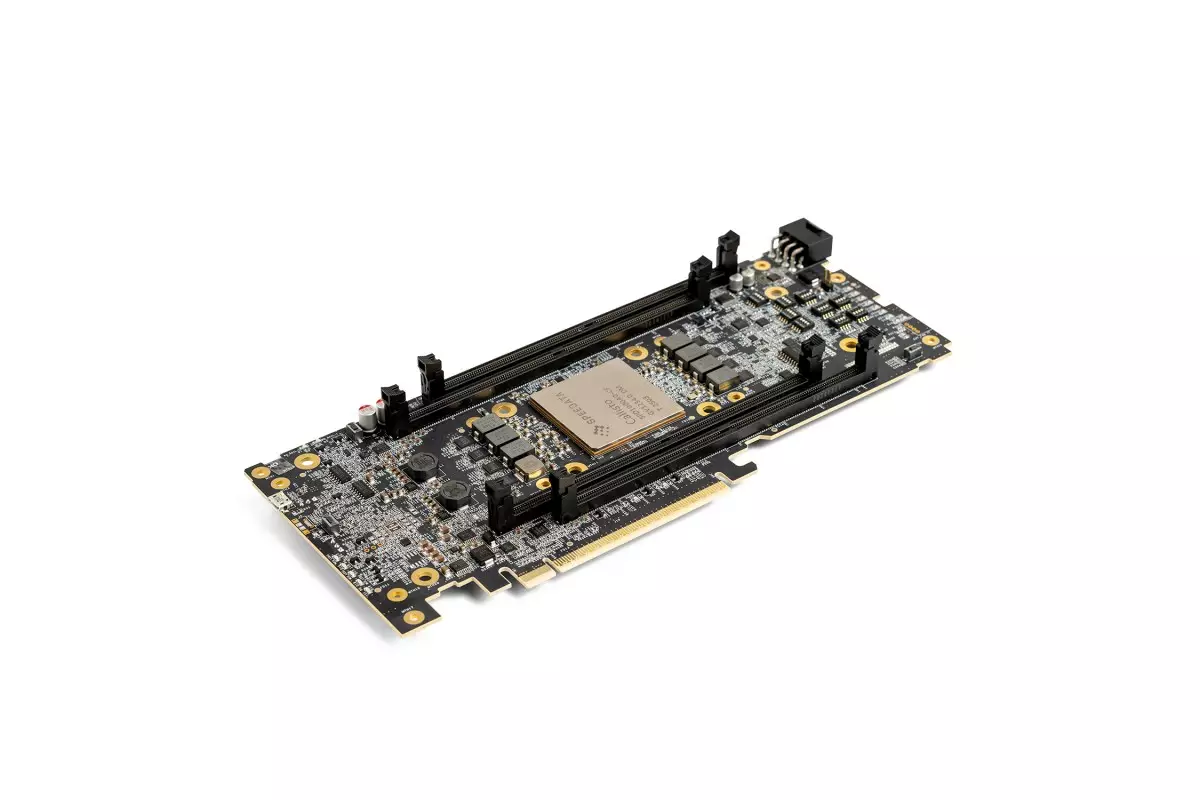In today’s hyper-connected world, the amount of data generated every second is staggering. As industries continue to embrace digital transformation, the need for faster and more efficient data processing has never been more urgent. Speedata, a revolutionary startup headquartered in Tel Aviv, has exploded onto the scene with its innovative analytics processing unit (APU), setting new benchmarks in how we handle big data and artificial intelligence (AI) workloads. Recently, the company amassed a significant $44 million in its Series B funding round, significantly bolstering its financial resources to refine its game-changing technology.
The Unique Approach to Data Solutions
What sets Speedata apart in a sea of data processing solutions is its commitment to purpose-built hardware. While other technologies such as graphics processing units (GPUs) have pivoted from their original design to accommodate AI and analytics tasks, Speedata has taken a refreshingly different path. Their APU is engineered explicitly for data analytics, targeting the inefficiencies of standard processing units. As CEO Adi Gelvan explains, the APU provides a holistic solution that outpaces general-purpose processors by minimizing energy consumption while maximizing processing speed.
Unlike traditional systems that may require extensive server arrays to manage complex workloads, the APU promises a monumental efficiency by delivering performance that could replace multiple servers with a single chip. This emphasis on efficiency is integral to Speedata’s vision; the founders recognized that traditional methods hampered organizations from unlocking their data’s full potential. By concentrating on crafting a dedicated processor, they facilitate quicker decision-making, thus catalyzing industry-wide innovation.
Visionaries Behind Speedata
Founded in 2019 by six groundbreaking engineers, Speedata draws on deep expertise in silicon research and ASIC design. Their impressive backgrounds in Coarse-Grained Reconfigurable Architecture (CGRA) technologies lay down a strong technological foundation for the innovative APU. This foundational knowledge was critical in addressing systemic challenges within the analytics ecosystem, showing how a dedicated chip can dramatically reshape the landscape of data processing.
Speedata’s exceptional progress since its inception includes a clear roadmap aiming for compatibility with all major data analytics platforms while currently targeting Apache Spark workloads—a choice indicative of both foresight and strategy. Gelvan’s aspiration to make APUs as ubiquitous in data analytics as GPUs are in AI training exemplifies the startup’s ambitious trajectory as it aims to redefine industry standards.
Revolutionizing Performance Metrics
Speedata’s forthcoming product launch at Databricks’ Data & AI Summit promises to be monumental. By showcasing tangible technology, the startup not only hopes to attract attention from the tech community but also has secured interest from large enterprises eager to test the APU’s capabilities. Among its impressive benchmarks, Speedata boldly claims that its APU completed a pharmaceutical workload in a jaw-dropping 19 minutes, compared to a staggering 90 hours on conventional processing units, yielding an unprecedented 280x speed improvement. Such a performance leap signals a potential seismic shift in the industry as companies strive for efficiency in an increasingly demanding yottabyte world.
Investors have shown robust confidence in Speedata’s vision, with major players like Walden Catalyst Ventures and Koch Disruptive Technologies backing the endeavor. This financial support isn’t just numbers on a balance sheet; it reflects a collective belief in the startup’s potential impact.
Prepared for the Scale-Up
As Speedata gears up for its official product unveiling, the excitement surrounding its release appears palpable. Gelvan has indicated that the startup is transitioning from concept to execution, having successfully tested their capabilities on field-programmable gate arrays (FPGAs), and is now ready to launch its first functional APU. This evolution points to a company well-prepared for scaling its operations effectively and meeting enterprise demands.
Critical to its future success will be the ability to penetrate a competitive market landscape brimming with incumbents and innovators alike. However, the groundwork laid by its avant-garde technology hints at a formidable presence on the horizon. As industries increasingly seek advanced solutions to handle complex data sets, Speedata might just be the key to unlocking unparalleled analytical capabilities and operational performance.

